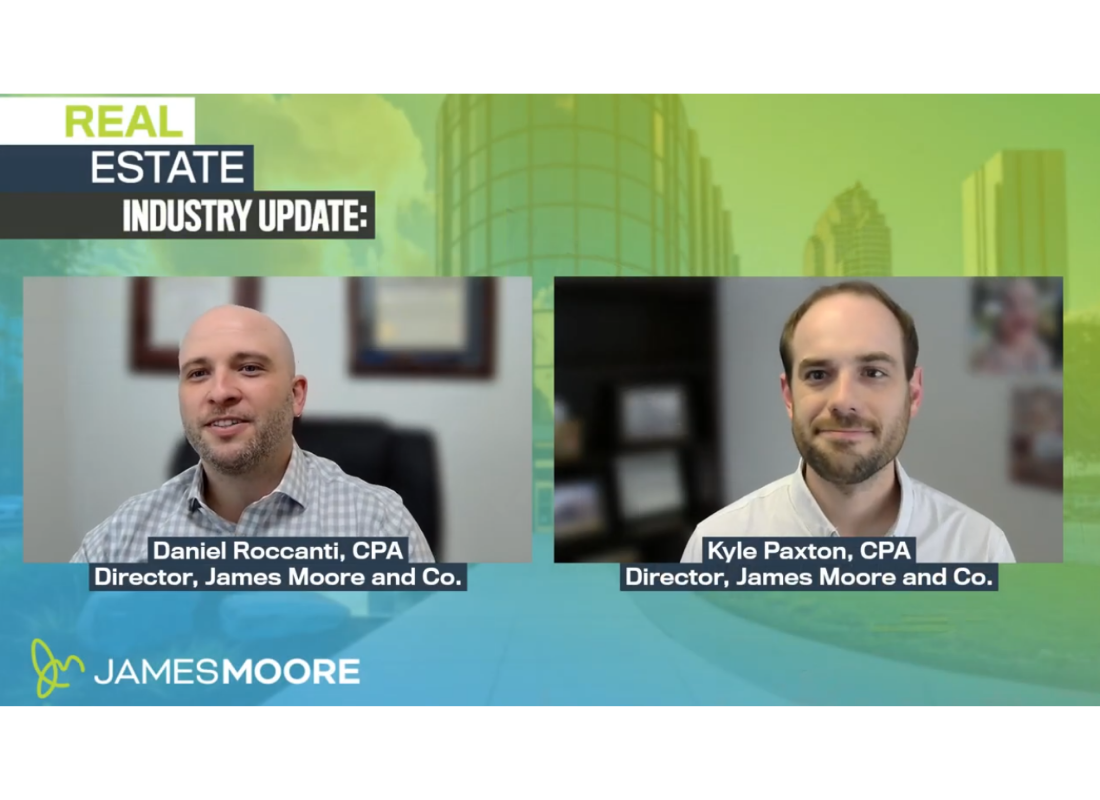Building the Right Financial Tech Stack for Real Estate: What Belongs In House vs. Outsourced
Originally published on September 2, 2025
Real estate companies aren’t just investing in properties anymore. They’re investing in smarter ways to run those properties. And while it might sound simple — choose the best tech, plug it in, move on — it’s anything but. The real challenge is deciding which tools your internal team should manage versus which functions are better handled by expert partners.
That’s especially true for growing firms with complex portfolios. From online rent collection and budgeting to repairs, maintenance and compliance reporting, technology is now embedded in nearly every aspect of property operations. So how do you know what belongs in house and what should be outsourced? It starts with understanding the seven major tech categories in a modern real estate operation, and the role each plays in managing risk, efficiency and insight.
Finance and accounting: Core infrastructure or partner-driven?
The finance and accounting function sits at the heart of any real estate operation. It’s where strategy meets the day to day. For most firms, this includes everything from managing general ledgers across multiple entities to handling accounts payable, collecting rent and forecasting cash flow. It’s not just about keeping the books. It’s about keeping up with regulatory requirements, spotting trends and giving stakeholders confidence in the numbers.
Many firms rely on property management specific ERPs like Yardi or similar platforms, which include integrated accounting modules. These systems handle essential functions such as property-specific accrual accounting, owner-level splits, CAM reconciliation and trust accounting. They’re built for the industry’s quirks, and they integrate well with tools like AvidXchange for automated invoice processing and vendor payments, or TenantCloud for tenant billing and online collections.
But just because these functions are critical doesn’t mean you need to manage every part of them in house. Many firms outsource the day-to-day accounting such as accounts payable(AP) and bank reconciliations to improve turnaround time and reduce fraud risk. Others partner with external advisors for cash flow forecasting and budget modeling at the portfolio level.
Typically, oversight of financial controls belongs in house. What’s often better outsourced? Repetitive processes like invoice matching, tenant ledger reconciliations and capital-call planning.
We often help clients assess whether their current setup supports growth and scale. Our team regularly consults with real estate companies on entity structure, accounting system evaluations and how to reduce compliance risk through smart system design. The result is better data, fewer errors and more time for strategic decision-making.
Leasing, marketing and tenant experience: Where automation pays off
The moment a leasing prospect expresses interest in a property, your tech stack should go to work. From lead capture to lease signing, your leasing and marketing tools define your tenant’s first impression. They also impact your team’s ability to respond quickly and consistently, especially across large or multi-location portfolios.
Many real estate companies still manage this pipeline manually, which slows response times and makes lead follow-up inconsistent. Instead, CRM platforms like Resquared (RE2.ai) can automate email campaigns, centralize broker communications and manage inquiry volume across platforms. Meanwhile, listing syndication tools push vacancies to internet listing services, complete with 3D tours and availability tracking.
Applicant screening and digital lease execution are now expected by tenants. Integrated solutions like TenantCloud handle background checks, lease generation, e-signatures and even security deposit workflows. These steps can happen within minutes when configured correctly.
So which parts of this function should stay internal? High-value tasks like relationship management and local market insights are better left to your in-house team. They know the neighborhoods, the property details and your ideal tenant profile. But automation should take care of everything else, such as follow-up campaigns, application status updates and virtual leasing workflows.
Tools that improve your tenant experience can also improve your occupancy rates and revenue. Digital engagement with tenants has become a key differentiator, especially in competitive markets. And in our experience, firms that invest in scalable marketing tech close vacancies faster and with fewer back-and-forth exchanges.
If you’re not sure how your current system stacks up, our Real Estate Advisory Services team can assess your leasing workflow and suggest tools that deliver stronger ROI without draining your internal resources.
Lease administration: Getting compliance right from day one
Lease administration might not make headlines, but it can quietly wreck your margins if neglected. A single missed escalation or improperly applied CPI adjustment can cost thousands. And lease terms only get more complex as your portfolio grows.
This function often includes abstracting key lease clauses, tracking rent schedules and managing critical dates. It also supports compliance with ASC 842 and IFRS 16, accounting standards that require detailed lease data for financial reporting. Many firms rely on built-in tools in Yardi or similar platforms, while others use specialized solutions like VTS or RE2.ai to manage these tasks.
In many cases, lease administration is best handled in house because it’s closely tied to finance, operations and compliance. Your team must understand the specific terms, obligations and escalation logic for each tenant. They also need to ensure that changes to lease agreements are reflected in your accounting system and budget models.
That said, many firms choose to outsource lease abstraction for new acquisitions or portfolio reviews. The key is to select a partner who understands your lease types, asset classes and jurisdictional requirements. A wrong interpretation of a renewal clause can have downstream impacts on your rent schedule and valuation assumptions.
Technology should support your team with automated alerts, digital document storage and integration with your general ledger. It should not replace judgment. Lease administration tools should reduce clerical work, not decision-making.
From a compliance standpoint, the margin for error is thin. Having tight internal processes, clear documentation and accurate system mapping reduces risk and improves audit readiness. If your team is juggling lease terms in spreadsheets or chasing down paper files, it’s time for a system that scales.
Maintenance and property operations: Keep what’s critical, outsource the rest
Property operations keep everything running, but they can also eat up time and payroll if the systems are clunky or outdated. This part of your tech stack should focus on speed, transparency and control. From scheduling preventive maintenance to handling urgent repairs, real estate firms need solutions that are responsive and mobile-friendly.
Work-order platforms like Proprli allow tenants to submit requests directly through a portal. These systems assign tickets, dispatch vendors and log repairs in real time. Many also support preventive maintenance schedules, mobile inspections and vendor tracking. The goal is clear: reduce downtime, avoid costly delays and keep tenants happy.
Vendor management can also get complicated, especially across a multi-property portfolio. With the right tools, you can maintain approved vendor lists, compare bids, track insurance and flag compliance gaps. This streamlines workflow and protects your business from liability and ensures vendors meet your standards.
So where does outsourcing make sense? Many firms rely on external call centers or third-party property managers to handle tenant requests after hours or during high-volume periods. Others outsource procurement entirely, using partners to manage RFPs and contracts while retaining final approval authority in-house.
Self-service is another area where outsourcing works. Portals like TenantCloud give residents access to maintenance requests, rent statements and community notices while freeing your staff from phone calls and paper forms.
At the same time, cybersecurity risks are increasing. Any system that connects vendors, tenants and sensitive documents needs to be evaluated carefully. Real estate firms must take steps to secure data flow between systems and users. That includes ensuring your vendor management software complies with basic cybersecurity protocols.
For firms managing a growing number of units, James Moore’s Business Advisory Services can help evaluate your property operations setup. We’ve seen how the right balance of in-house oversight and outsourced automation reduces costs, shortens response times and improves tenant satisfaction.
Asset management and investor reporting: The outsourcing sweet spot
This is the big-picture layer where everything comes together. Asset management covers the full lifecycle of an investment, from acquisition and construction to hold analysis and eventual sale. It also includes valuations, compliance with debt covenants and tracking of capital projects. For many real estate firms, these functions are too important to get wrong but too resource-intensive to manage internally at scale.
Investor reporting adds another level of complexity. It requires transparency, timeliness and credibility. Roll-up dashboards, internal rate of return (IRR) metrics and distribution schedules all feed into decision-making by capital partners and board members. One late report or incorrect calculation can damage trust and slow your access to funding.
That’s why many real estate companies outsource at least part of their asset management and investor relations process. Specialized consultants or fund administrators can handle waterfall calculations, fund-level accounting and complex capital stack modeling while your team focuses on strategy.
Construction oversight is another area where outsourcing helps. Platforms like Procore and Sage 300 allow you to monitor budgets, field activity and change orders in real time. But it’s common to bring in external project managers or advisors to help control costs, verify subcontractor payments and manage documentation.
For firms seeking to attract institutional capital or enter new markets, outsourced investor reporting services can add professionalism without building a large internal team. Per to the Securities and Exchange Commission (SEC), firms must ensure that capital project reporting is accurate and timely, particularly when dealing with regulated investors or private equity backers.
Internally, your role is to own the strategy and ensure alignment between the firm’s investment goals and the data being reported. Externally, using experienced advisors or fractional CFO services can help you deliver investor-ready reporting that holds up to scrutiny.
Real estate finance tech stack: Built, bought or both?
Whether you’re managing 20 units or 200 properties, your tech stack needs to reflect how your business works today and where it’s going tomorrow.
Some functions clearly belong in house, like lease interpretation, while others are better handled by trusted partners. The key is knowing where to draw the line and ensuring your tools support that decision with accurate, accessible and timely data.
At James Moore, we work with real estate companies every day to help them find that balance. From setting up scalable reporting systems to selecting tech that fits your asset class mix, we bring deep industry experience to each decision point.
If your current tools are slowing you down or creating more questions than answers, it may be time for a fresh look. Contact our team to see how we can help you design a tech stack that delivers clarity, control and confidence, without the operational headaches.
All content provided in this article is for informational purposes only. Matters discussed in this article are subject to change. For up-to-date information on this subject please contact a James Moore professional. James Moore will not be held responsible for any claim, loss, damage or inconvenience caused as a result of any information within these pages or any information accessed through this site.
Other Posts You Might Like




